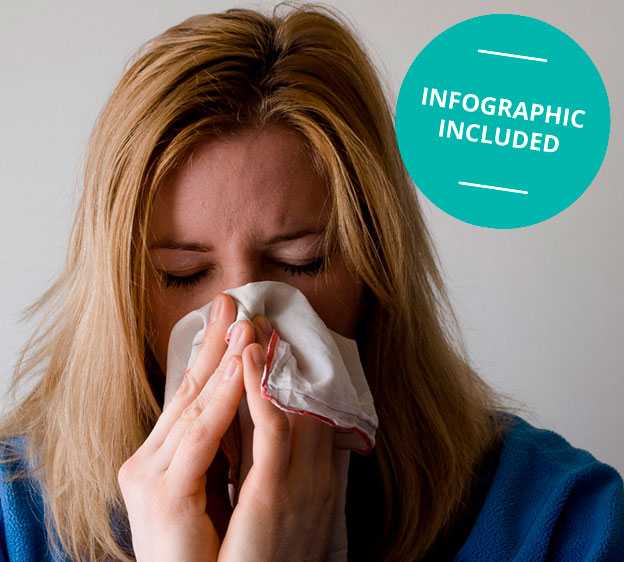
Doctors may call it a viral upper respiratory illness, but to you it’s the crud — that bad-news combination of sore throat, runny nose and cough that typically comes on in winter and hangs on until spring.
Is there any way to fast-track a cure? Dr. Julian Levin, a board-certified family medicine specialist with Beaufort Memorial Express Care & Occupational Health, weighs in.
Q. First of all, what exactly do I have?
A. It depends on your symptoms. A sore throat, runny nose and cough that develop gradually are symptoms of a viral upper respiratory illness, as is a low-grade fever that resolves in a day or two. The cough, which can — and often does — last for weeks, is the most troublesome of the symptoms for most patients.
Q. How do I know it’s not flu?
A. The influenza virus presents differently. It comes on suddenly; patients can frequently pinpoint the day and time it hit. The symptoms are more severe, generally including headache, body aches and high fever — the classic I’ve-been-hit-by-a-truck feeling.
If this sounds like you, try to get to a primary care provider for a flu test as soon as you can. Assuming the test is positive, you can reduce the flu’s severity and duration by starting an antiviral like Tamiflu within 48 hours of symptom onset.
And by the way, though you can get the flu even if you’ve had a flu shot, you’ll typically be much less sick than if you haven’t. In case you need one, that’s another reason to get the shot.
Q. OK, so I have the crud. Will antibiotics help?
A. No! They may make things worse, in fact, by causing GI upset and other side effects. Antibiotics are an effective treatment for bacterial illnesses only; what you have is viral.
Q. Will anything help?
A. Yes! Believe it or not, the No. 1 thing is Tylenol, Motrin or Aleve. Any of these over-the-counter pain relievers will make you feel less awful.
What to do for the lingering cough is tougher. It’s often caused by a postnasal drip that fails to resolve and continues to irritate the back of the throat. Decongestant nasal sprays like Flonase can help reduce the drip, but the real cure is time.
That said, if the cough has gone on for more than six weeks, it’s probably time to see a primary care provider. You may have developed a secondary bacterial infection that does require antibiotics.
Q. What are the symptoms of a secondary bacterial infection?
A. You were getting better, but then you start getting worse, with a worsening cough and fever.
Q. Could something else be causing my symptoms to hang on?
A. As spring approaches, it’s possible an allergy to tree pollens is the culprit (in summer, make that grasses, and in fall, weeds). In that case, a decongestant nasal spray and an antihistamine like Claritin can help relieve the symptoms.
Read More: Flu Season, You and Others
Q. How can I avoid getting sick in the first place?
A. Practicing good hand hygiene — that is, washing your hands thoroughly and frequently, especially before meals and after using the bathroom — is one of the most important things you can do to keep yourself healthy. Getting enough rest and following an adequate diet contribute, too. And though the jury’s still out on its efficacy, there is some evidence that a daily dose of vitamin C (500 milligrams is sufficient) may help bolster the immune system and thus prevent illness.

Want to be seen quickly? Beaufort Memorial offers several options to get you the care you need on your schedule.

